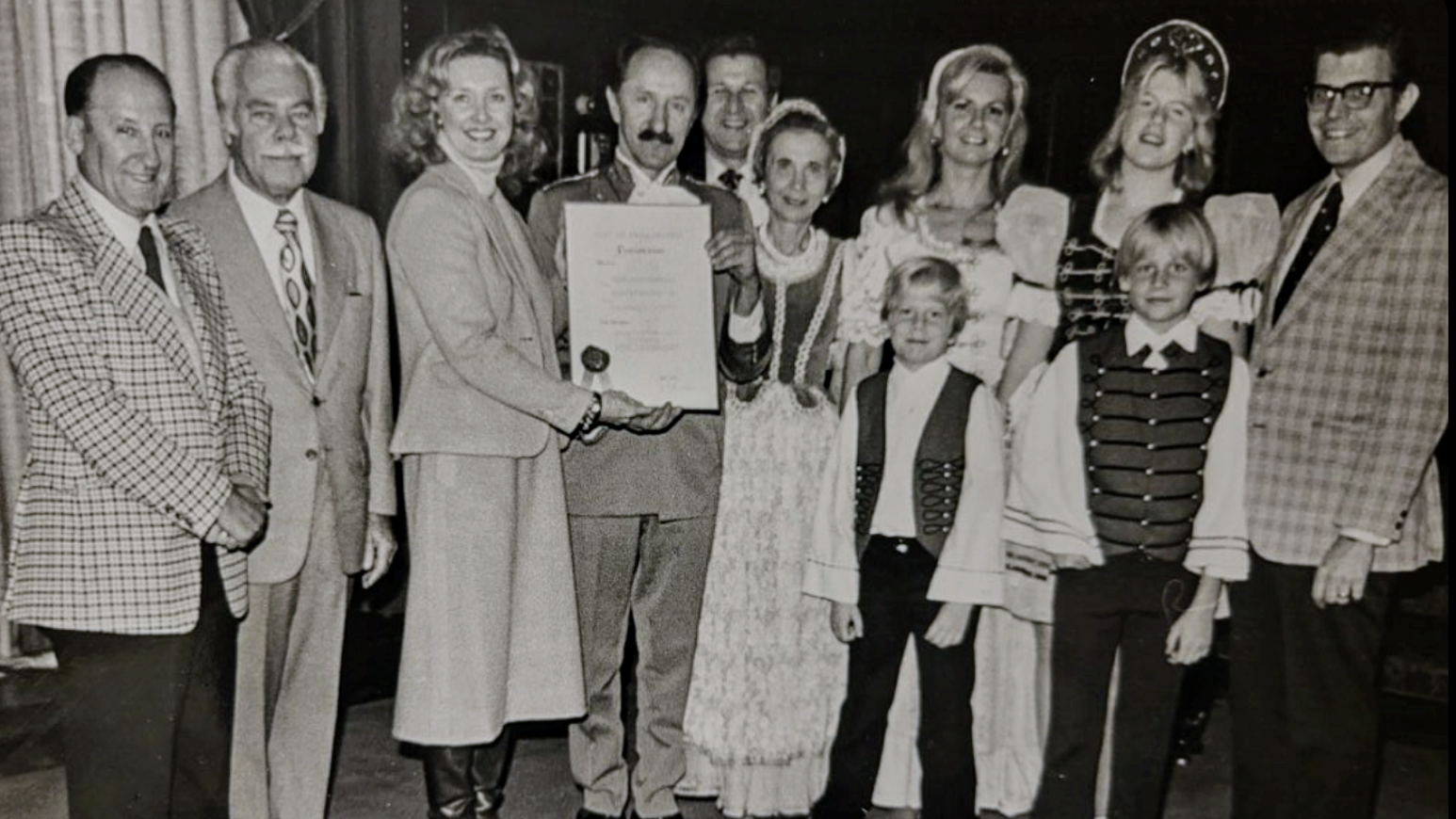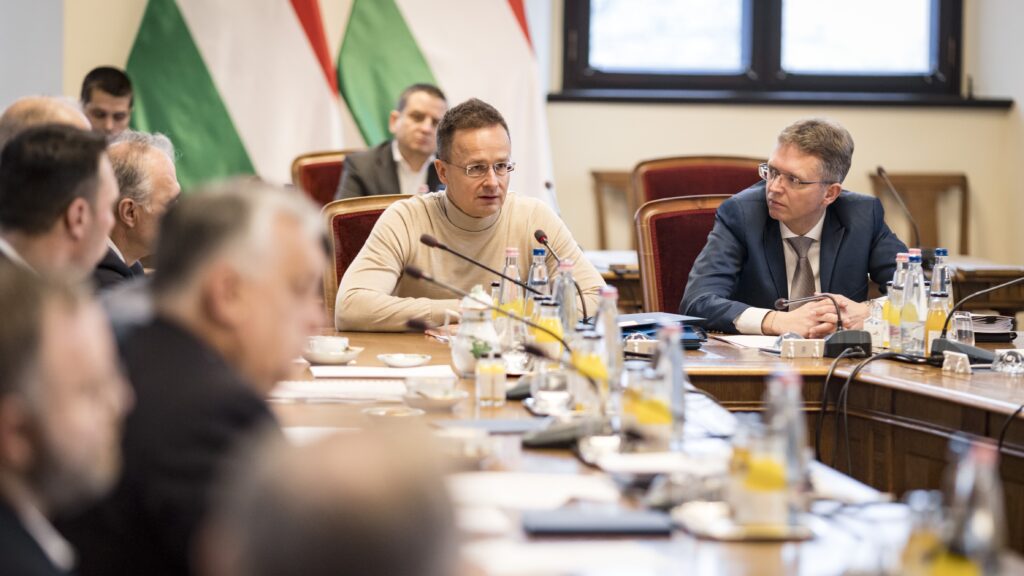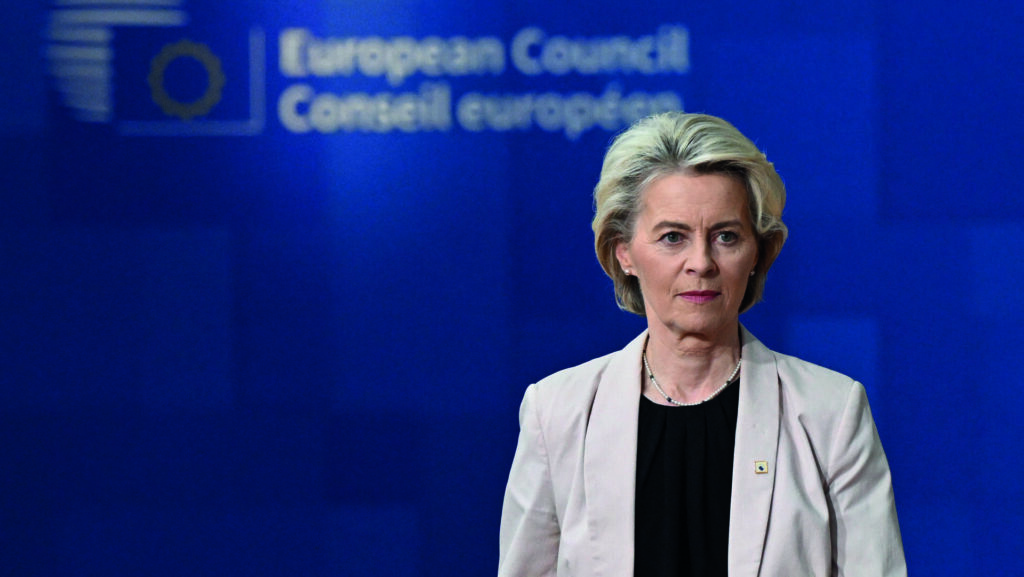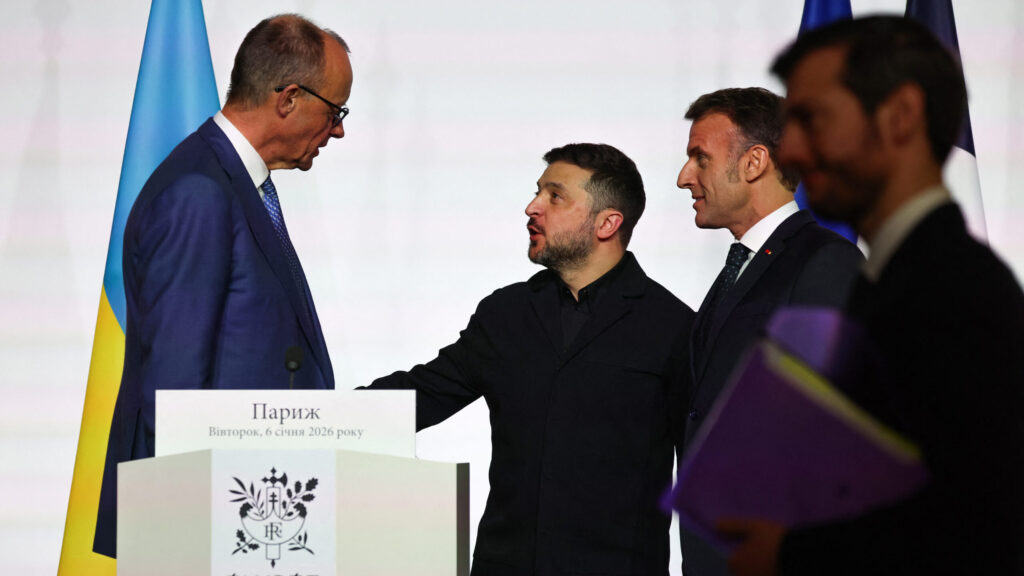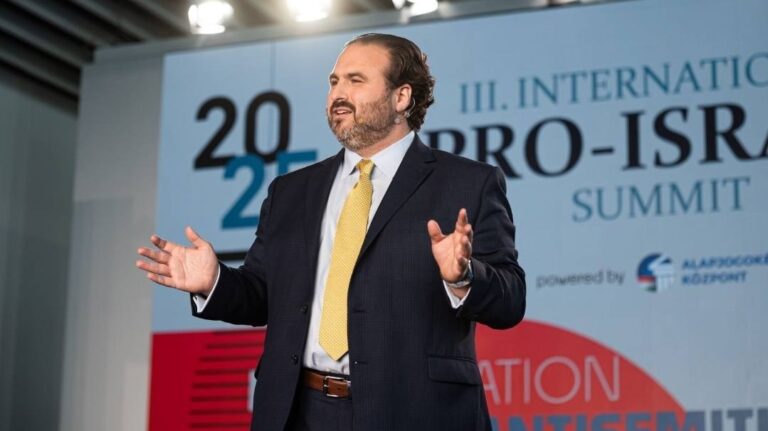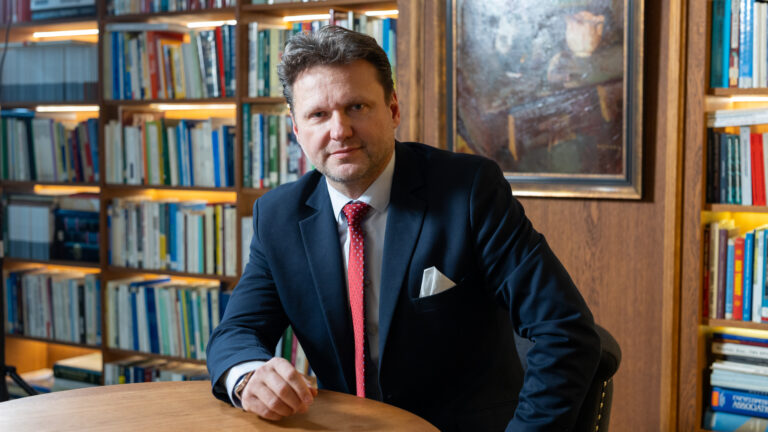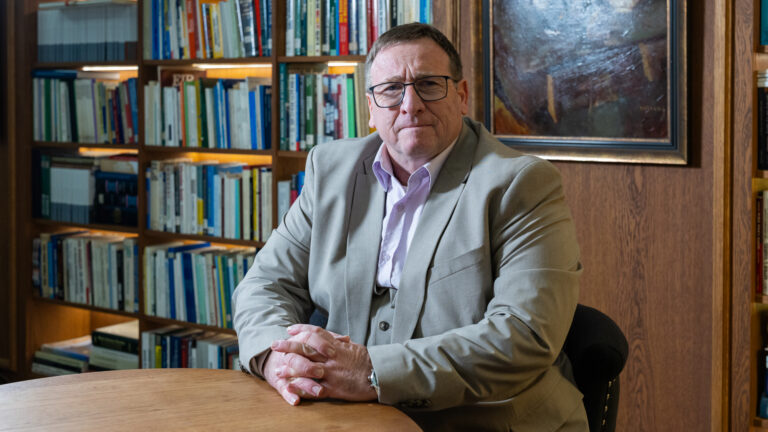Gabriella Lendvay fled Hungary with her family after the 1956 revolution and freedom fight. It took a long time before her singing talent was discovered. While raising three children and working in a lab, she only began studying singing and performing regularly around the age of 30. She became the celebrated prima donna of the Hungarian Theater in New York and a frequent performer at events across Hungarian communities on the East Coast. She also toured throughout the U.S. and a few times in Europe. Nowadays, she rarely performs, but her love for singing remains unchanged.
***
You arrived in America as a little girl. Tell us about your family’s escape.
My parents were from Tokaj and met very young—my father, Géza Nagy, was 18, and my mother, Margit Zsuginetz, was only 16 at the time; they married two years later. My paternal grandmother was from the Vajthó, an affluent noble family which still owns a vineyard and wine cellar in Tokaj today, currently managed by my cousin Jenő Vajthó. I was born eight years after my sister Márti, followed by my younger brothers Géza and Imre. My older brother and I were born in Transylvania (today part of Romania)—I in Szinérváralja (Seini), and he in Szatmárnémeti (Satu Mare)—because during the war, my father was stationed there as a civil servant when a part of Transylvania was under Hungarian control for four years.
In the 50s, my father worked in Pesterzsébet (Budapest, Hungary) as a land registry clerk. He was passionate about the revolution in 1956 because he was always patriotic and deeply hated the communists. He once severely criticized the communist leaders at a workers’ council meeting during the revolutionary days, and a colleague warned him that he was being hunted after the ensuing freedom fight was crushed by the Soviet troops. We didn’t hear from him for weeks in November 1956—we thought something terrible had happened or he might even be dead—but, as my mother later told us, he finally appeared on the night of 26 November and told her to pack a small bag, because we had to flee immediately. My sister was 20 at the time and already had a one-year-old son with her husband, a medical student. All of us set out together before dawn. They told us children that we were going to visit our sick grandmother. On the train toward Győr, a man dressed as a priest was praying, and my deeply religious mother sat next to him desperately asking for help as we had no idea where to go, even though it was unclear whether he was truly a priest or an undercover communist agent. He advised us to get off the train with him and led us to a house where others willing to flee were also gathering. There were about 15 or 20 of us, and two young men guided us to a location near the Austrian border. I remember walking in the dark for a long time across snowy, muddy fields and hiding whenever we saw flares fired by the border guards. At one point, our guides stopped and advised us to continue straight—we’d reach a bridge and a narrow stream, and once we crossed those, we’d be in Austria. We found the bridge that had many of its planks missing—my mother even fell into one of the gaps, and it was difficult to pull her back up. Therefore, my sister’s husband carried me in his arms across the icy stream instead. After crossing, there was a disagreement about which direction to go. We followed the path the guides had suggested and later met a couple who had taken an alternative route, then got lost, but then they rejoined us. When the women were too exhausted to continue walking and the children kept crying, my father decided we’d stop and entrust our fate to God…
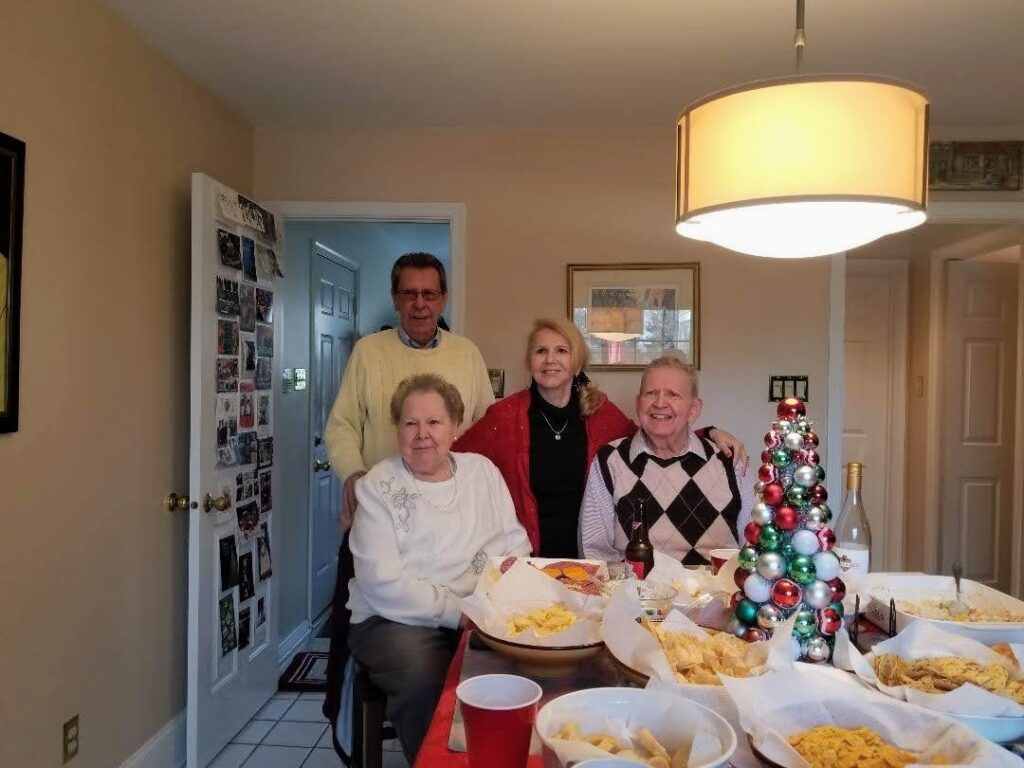
What happened to your family?
We fell asleep by a haystack in the freezing night and awoke at dawn to the sound of a tractor and someone saying ‘Guten Morgen!’, which made my parents jump for joy. We stayed at an Austrian refugee camp for a few weeks, and on 1 January 1957, we arrived in New York aboard a military ship. Afterwards, we stayed for a while at the Camp Kilmer refugee camp, where wealthy sponsors regularly came to help refugees obtain residency status. A gentleman named Otto Patzau—who also had a chocolate factory in Vienna, Austria—chose us. My sister and her husband were taken to his own mansion in Ardmore, Pennsylvania, where for a while they worked as a cook and a gardener, respectively. The rest of us were sent to live for a few weeks with another wealthy family in Narberth, Pennsylvania, who clothed us and introduced us to the local Reformed Women’s Association. They helped us find a house and a school, which is how we ended up in an affluent suburb of Philadelphia. My father got a job at an electrical repair workshop, where they trained him, and he worked there for the rest of his life. My mother couldn’t work while caring for three children and a grandchild. Later, she found a job as a cleaner for a wealthy lady and took me and my nephew along to help. Eventually, we moved to a larger apartment: the service apartment of a rowing club, The Bachelors Barge Club, that Jack Kelly, the athlete brother of actress Grace Kelly, used to frequent. The club was looking for a family to manage the facility, and my parents got the job. My father maintained the club and commuted from there to work, while my mother cleaned and cooked for the two or three parties that club members hosted each week. We attended the same church as Grace Kelly’s family. I finished eight grades at the local school and then entered high school. In the school orchestra, I became the first viola player only because no other instruments were left to choose from. Our conductor was a Hungarian man named Jenő Donáth.
So you didn’t start with singing? Does your love of music come from your family?
My father could play the violin beautifully even without much formal training. My mother’s sister raised both of her daughters alone, as her husband, a cantor, never returned from the war. These two became teachers, had beautiful voices, and also played the piano. The daughter of one of them, Judit Rajk, became a recognized opera singer in Hungary and is now the director of the International Kodály Institute in Kecskemét. I also loved music and singing, but my very busy parents didn’t notice my talent—they only paid attention to my sister’s beautiful voice. Back in Hungary, before we fled, she studied opera singing with a teacher while attending the Szent László High School in Kőbánya, Budapest. I loved listening to her and longed to have a voice like hers…It was only much later that it turned out I did.
‘At performances like these, I often fall asleep, but your coloratura passages were so beautiful that this time I couldn’t’
While I played viola in the school orchestra, I educated myself musically at home. The club we lived in had a piano, so I started playing on it. At 16, I worked as a waitress in a café and sent my first paycheck to my godmother and grandmother in Tokaj to buy a washing machine…With my second paycheck, I bought a small record player and regularly ordered records—that’s how I learned many songs. With my third paycheck, I bought a used accordion for $40 from someone I had heard playing at a party, and I learned to play that too.
What happened after high school?
I wanted to become a chemical engineer because I was very good at physics and chemistry. My husband, Lajos, was studying chemistry, finishing his MD and then his PhD at the University of Pennsylvania, and that summer, he told me there was an opening for an interim lab technician position at the university’s pharmacology department. I didn’t know much about it, but I was precise and diligent, quickly picked it up, and they were pleased with me, so my position became permanent after that summer. My job was to dissect the stomach nerves of frogs for neurological experiments. I really liked working there, so I completed the lab technician training. But when I got pregnant, I had constant nausea—I couldn’t drive, couldn’t take the bus, and certainly couldn’t dissect frogs—so I had to stay home. At first, I didn’t know what to do with myself. In the Hungarian magazine called Fürge Ujjak (Nimble Fingers), I saw a beautiful white evening gown with stunning Hungarian embroidery, worn by an opera singer named Gabriella, standing at a piano. I copied the pattern and in three weeks I sewed and embroidered it. At that point, my voice hadn’t been discovered yet, but I was already dreaming…I also sewed maternity clothes for myself, then gradually made clothes for my whole family at their request.
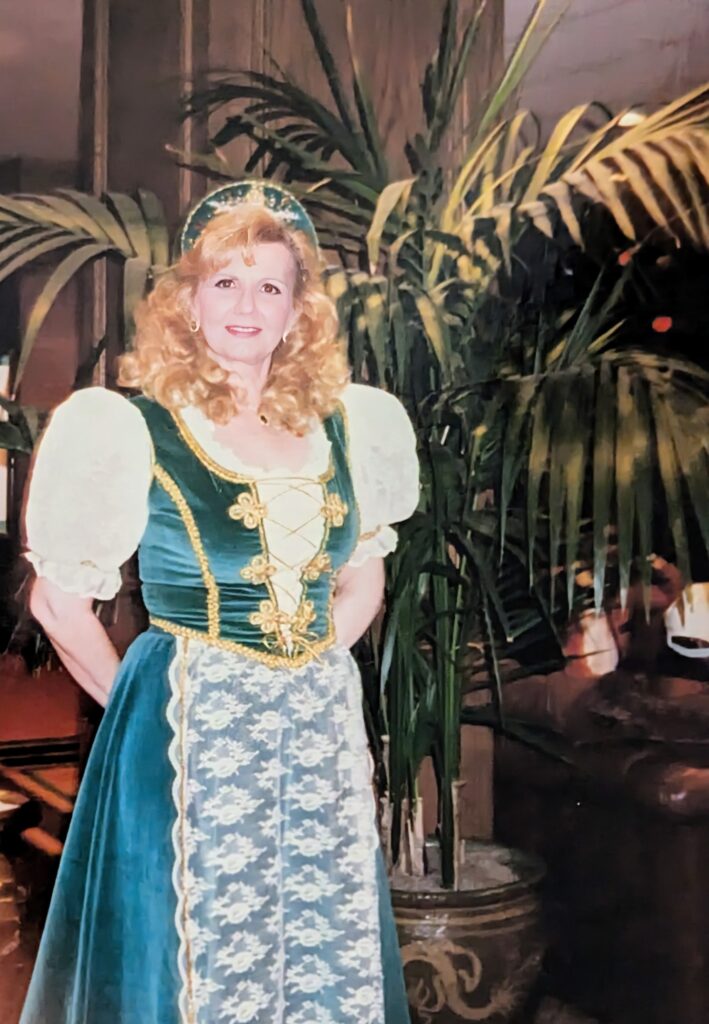
Speaking of family, how did you meet your husband? How many children and grandchildren do you have?
I was a bridesmaid at the wedding of one of my father’s friends when I was 17. Lajos was already 24 at the time and also attended the wedding. His parents had come to America when they were young and met in Cleveland, Ohio. I was raised very strictly; my father didn’t allow me to meet boys at all. But Lajos made a good impression on him because he was gentle, intelligent, and well-educated. His parents really liked me, too. It wasn’t love at first sight, but we grew to love each other. We had three children—one girl and two boys. They were scouts and spent summer camps at the Sík Sándor Scout Camp in Fillmore, New York. Our daughter, Lisa, studied nursing, got a master’s degree, and later became head of the emergency department at a hospital. She was very smart, talented, and caring—once she even saved the life of a friend—but due to overworking and irregular eating, she developed colon cancer and died after three years of suffering at the age of 38…My older son, Michael, is a financial director at a large clothing store. Edward is currently the head of the emergency services in all of Philadelphia. Both of them learned to play guitar.
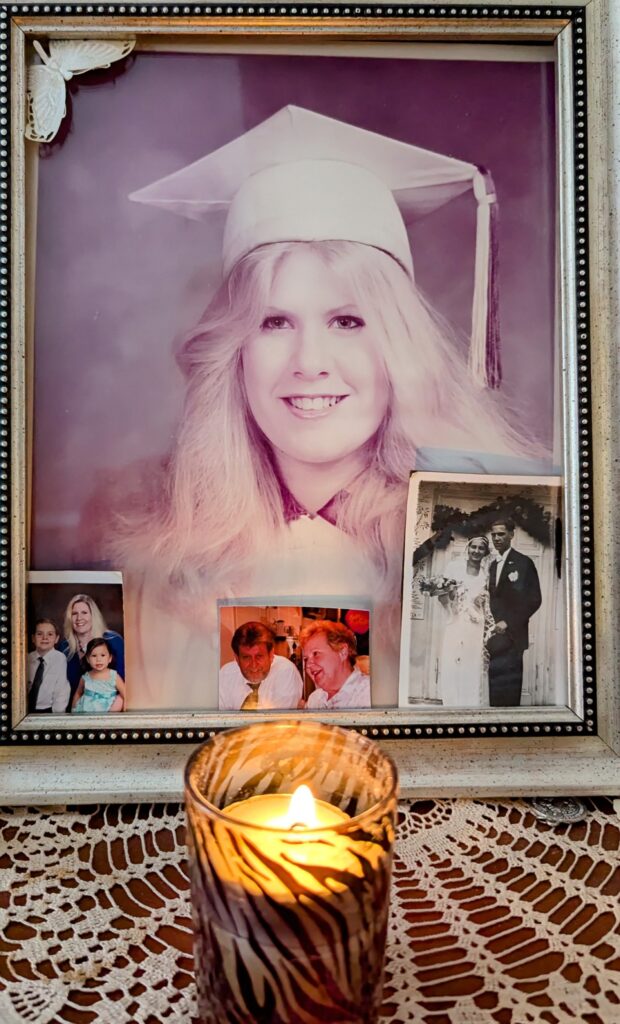
We have two grandchildren. The 21-year-old Michael James also learned to play the piano and guitar, and sometimes he and his father would play and sing together. As a little boy, he used to sing with me and could even follow the high notes. Last year, he completed a six-month course in recording engineering in Nashville, Tennessee, and is now continuing his studies at university, with plans to open a studio. The 13-year-old Gabika sings in the school choir and plays guitar. When she was four and heard me singing a Puccini aria in the car, she began humming along. Within two days, she had learned the Italian lyrics and could sing even the high notes. We were on our way to visit my very sick daughter—Gabika’s godmother—and we sang by her hospital bedside as tears streamed down her face. Lisa died two weeks later…Sometime after the funeral, at a community lunch at the Hungarian Club in Philadelphia, the little girl suddenly went up to the microphone and called me over to sing the ‘O mio Babbino Caro’ aria together in memory of her godmother…It was incredibly moving.
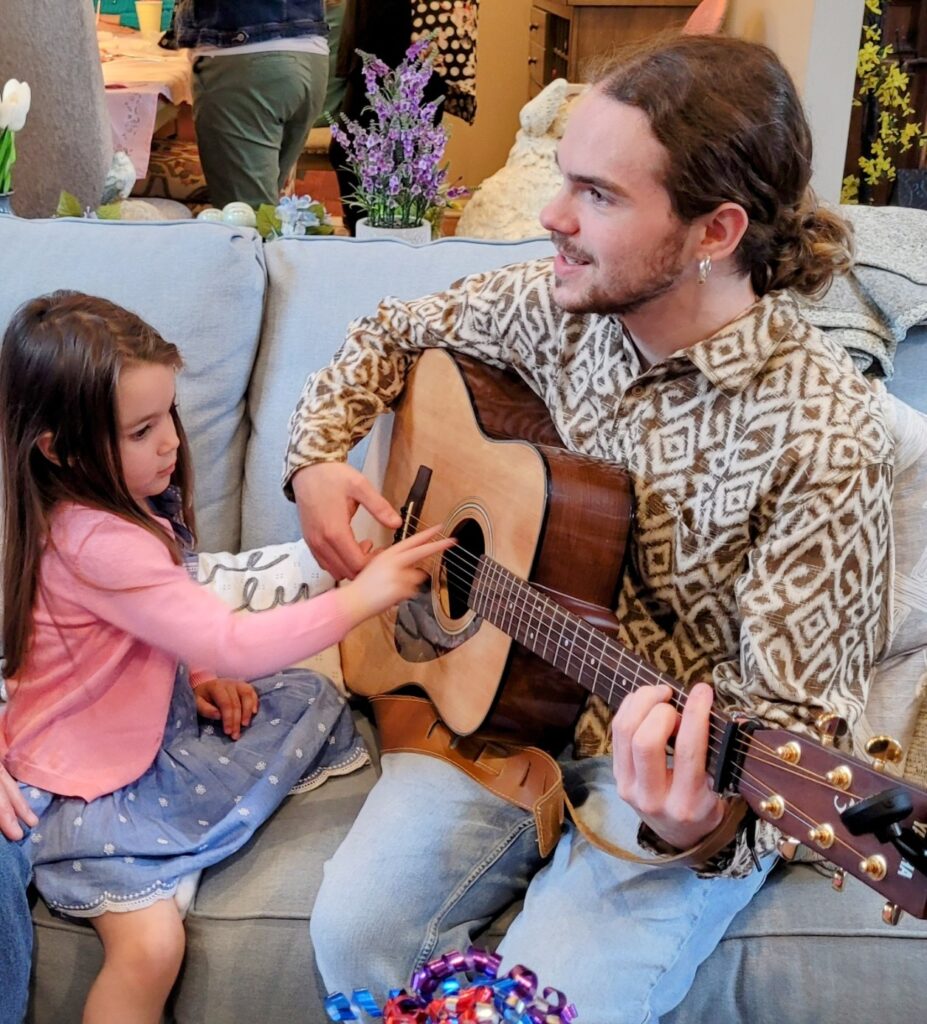
Tell us more about the Hungarian Tanya. What memories do you have?
After arriving in America, my father quickly connected with other Hungarians. There was a Hungarian house in Philadelphia called ‘Dalárda’, but it was located in the city, and many longed for a place out in nature where Hungarian families could gather regularly. One day, my father was on his way to an annual pig slaughter event with Jenő Demetrovics when they discovered a beautiful place. It was love at first sight, they called the others and decided to purchase it. They worked hard to shape it into what it is today. József Szottfried became the first president, since my father didn’t want the position, he was vice president for a while. He didn’t spend as much time there as he’d have liked, because he was often ill; during construction, for example, he got pneumonia. Unfortunately, we didn’t go there much during that period, because I was busy with high school and music, but later I often took my children there and also performed there; for a while, we were present at every yearly Hungarian Day. My husband and I still try to attend and support every celebration there.
Let’s finally turn to your singing career. When were you ‘discovered’?
When I was about 14 or 15, the Soós couple, with whom we fled together, was visiting us. When my father was playing ‘Akácos út’ on the violin, I started singing, and everyone was amazed when they heard my voice…Much later, when Laci Soós opened a radio and TV repair shop, he brought a bunch of cassette tapes to one of our parties—including one by Katalin Karády, which I could sing along with. Laci invited me to his workshop to make a recording. At the time, there was a local Hungarian radio station in Philadelphia, where József Szottfried’s daughter, Judit, had a show every Saturday. Dr. István Szabó (Uncle Pista to us), a close friend of my father, once visited Laci while heading to the radio, and Laci gave him my tape to listen to. Uncle Pista immediately declared: Gabi should sing at the next Hungarian celebration. I was so shy and terribly nervous when I first performed at the 23 October celebration at the Hungarian Tanya—where my father was the keynote speaker—that my knees were shaking, even though I was already 29 at the time. That’s how it all started.
And how did it continue? Did you study singing formally?
When I visited Hungary with my father, I collected many Hungarian books and records and learned as much as I could by listening. When I got married, I asked my husband to buy me a piano, and I started learning opera arias on it. But I wanted to study too. Since the famous Curtis Music Academy wouldn’t accept me due to my age, I enrolled at the excellent Settlement Music School. In the meantime, I sang for three years with the Delaware Opera Company. When Rutgers University’s music department announced a performance of The Csárdás Princess, I auditioned. I played Stázi and sang ‘Túl az Óperencián’ with Tibor Kelen, a famous Hungarian singer working in New York at the time. That’s when people really began to take notice. A Hungarian man from Phoenixville, Pennsylvania, whose mother had been an opera singer in Hungary, heard my voice and offered to record it. He knew József Vargyas, the first president of the Hungarian Club in New Brunswick, New Jersey, and sent the tape to him. József invited me to debut at the famous Hungarian Festival, where I performed for many years.
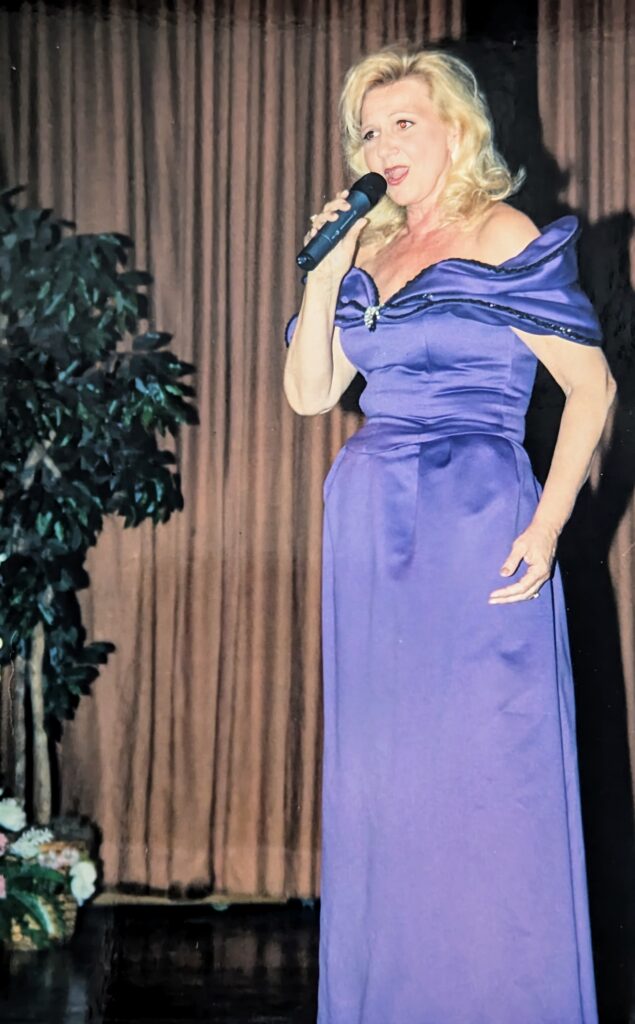
A pianist recommended me to Erzsébet Cserey, director of the Hungarian Theater in New York, and I soon became her prima donna. We rented the stage at the Robert Wagner High School, our pianist was László Fornwald, and we performed shows like The Lady of the Camellias, Klári Tolnay’s life, Women in the Revolution, or The Hungarian Women of Destiny. Most of these shows were written, directed, and co-performed by Cserey herself. I played Katalin Karády in the last one; Cserey played Sári Fedák, and Szilvia Kovács—who has since moved back to Hungary—played Mária Mezei. We performed many times in New York, and toured with our shows to Connecticut, Pennsylvania, New Jersey, California, Florida, Canada, Hungary, and even Switzerland. In those years, I constantly traveled. I sewed all my evening gowns for years and mostly at night because during the day I worked and took care of my family.
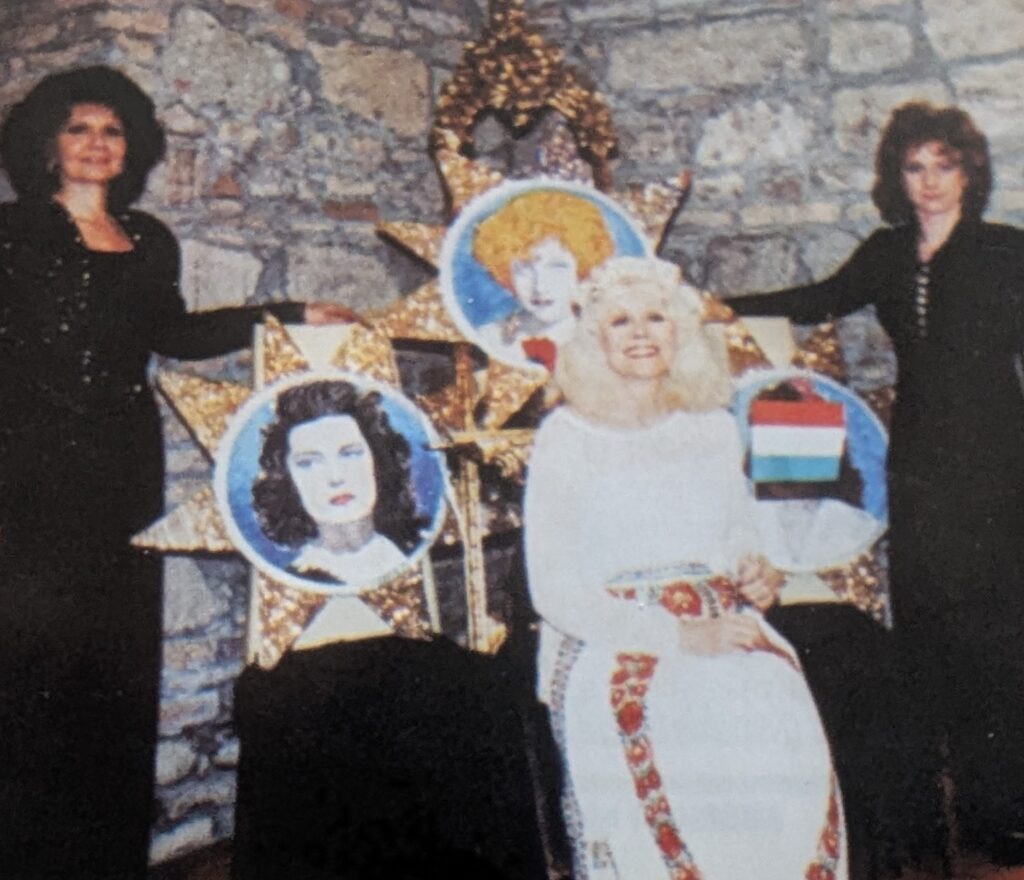
In addition, I continued my studies during the summers. My opera singer cousin in Hungary introduced me to a master teacher, Margit Kaposi, who agreed to teach me, claiming that I had a ‘divine voice’ and could perform anywhere in the world. She, however, got sick, so I ended up with Zsuzsa Szelezán, a student of the famous Magda Nádor. My first CD, Karády, was recorded in Hungary. During those summers, my mother, who lived close to us, took care of our children. My husband always supported me, too, even with the recordings of my subsequent CDs.
You mentioned that you also performed in Hungary and Switzerland. How did that happen?
I even performed in Transylvania! In 1995, Erzsi Cserey took me to the theater festival in Kisvárda, Hungary, where I was the only singer; everyone else performed drama. There, the secretary of Bishop László Tőkés of the Reformed Church asked me if I would be willing to give a performance in Transylvania as well. I said yes, so Erzsi flew back to New York without me. On the way to Romania, we stopped in Debrecen to see the opera of Bánk bán and met the singers, which was an unforgettable experience for me—because I, too, had sung several songs from that opera before.
‘Seek the true face of people, and live in such a way that others may see your true face’
In Nagyvárad (Oradea, Romania), I was invited to a radio interview, during which they announced that I’d have two performances that evening…They didn’t even know who I was, yet there was a full house waiting for me. First, my manager, Dr. Árpád Nagy—my father’s cousin—introduced the Hungarian Theater of New York to the audience. Then I presented a genre-diverse repertoire typical in America but unusual there: chansons, Hungarian popular songs, nostalgic numbers, musical and classical pieces, operettas, and opera arias. After the very first song, a little girl gave me a large bouquet of flowers. I didn’t want to place it on the ground, so I sang with it in my arms until the first intermission. The applause was thunderous, the smiles plentiful—I had never felt so loved before. All my fears disappeared…
After the evening show, László Tőkés and his group took me to dinner. He told me: ‘At performances like these, I often fall asleep, but your coloratura passages were so beautiful that this time I couldn’t.’ The Bihari Napló newspaper praised the evening with these words: ‘She brought out the best of her knowledge in the most refined genres, and despite all indisposition, she proved that her voice—spanning three and a half octaves—is a miracle in itself. Her interpretations of Verdi, Puccini, Chopin, and Schubert, as well as her Gershwin selection, made the evening unforgettable.’ I donated the proceeds from both shows to the local Reformed church and to the upcoming World Congress of Reformed Church.
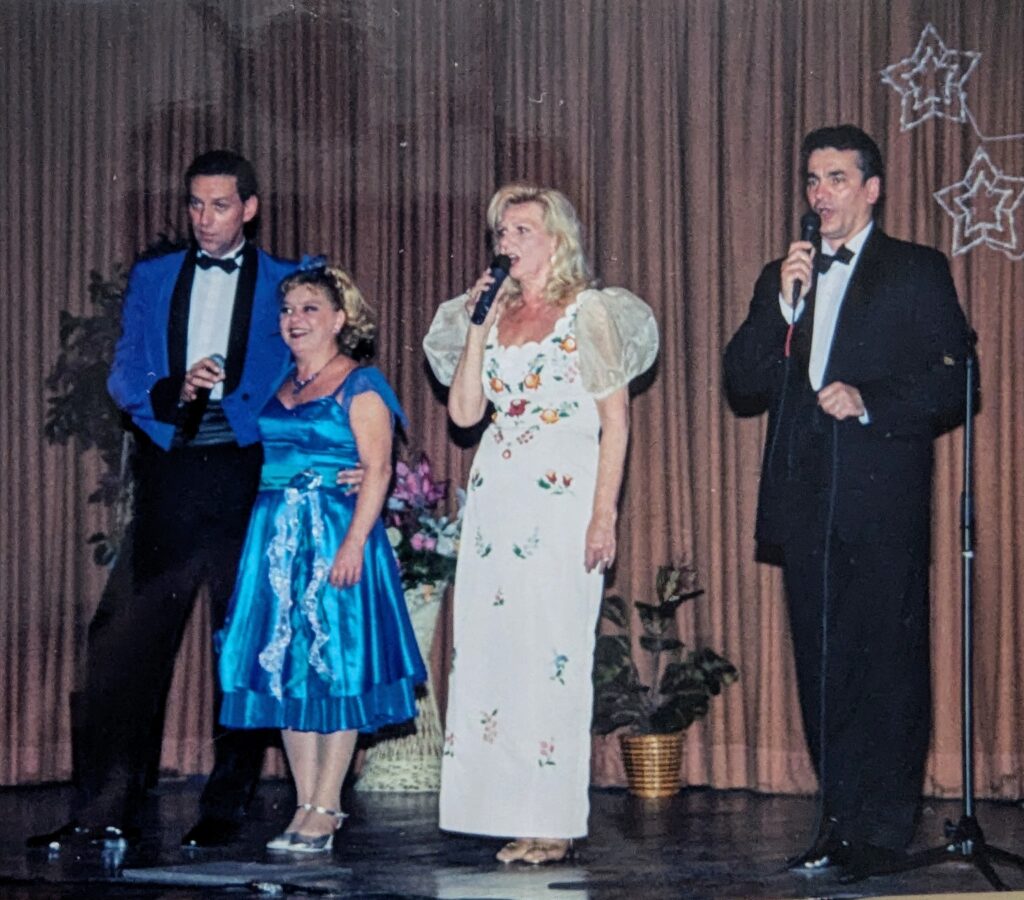
Later, I returned to Transylvania twice more with a singing partner: Béla Csikány, a tenor from the chorus of the Budapest Operetta Theater. We first met in Óbuda, at a Saint Peter and Paul Day celebration performance. Béla later came with me to perform in America as well. I had already been a regular performer at the Literary and Arts Evenings of the Cleveland Hungarian Congress, and in 2004, we performed there together. Thanks to András Pongrácz, we toured the Hungarian communities of North America three times, from Florida to Chicago, from Arizona to Canada along with Ferenc Keskeny’s Gypsy band. We took turns singing, performed duets, and offered a program featuring operatic and operetta numbers, folk songs, and Hungarian popular songs. At one of my performances in Cleveland, Dr. László Sasvári from Switzerland was present and invited me on a tour there. Everything had been arranged for the trip—but then came the terrorist attacks of 11 September 2001, and I had to cancel as my husband wouldn’t let me go…In 2003, we successfully staged The Hungarian Women of Destiny in three Swiss cities.
Why didn’t you become a full-time opera singer? What happened to the Hungarian Theater in New York? Do you still perform today?
I didn’t become a full-time singer, first of all, because I started too late. Secondly, because singers are terribly jealous and guard their positions fiercely. Thirdly, with my family responsibilities, I couldn’t have taken on more than the frequent theater performances in New York, the occasional tours, and the regular events of the local Hungarian community. Cserey Erzsi paid us, but most of my performances, which I delivered at Hungarian community events, were voluntary, i.e., unpaid. After Erzsi became ill, Szilvia took over leadership of the theater, but later, when she moved back to Hungary, the theater ceased to exist.
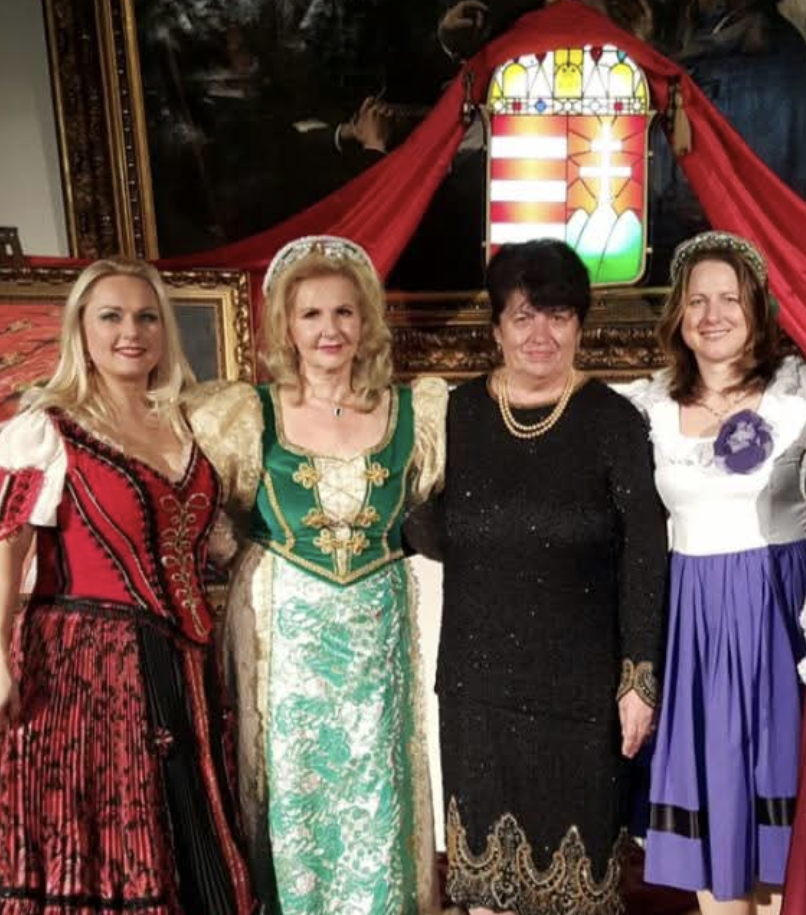
These days, I only have a few performances a year. Occasionally, I sing at Hungarian national celebrations at the Hungarian Tanya in Pennsylvania, and sometimes at private parties—but I’m rarely invited elsewhere. Every local Hungarian community has its own ‘established’ performers, and since my brain surgery and my daughter’s illness, I’ve essentially fallen ‘out of the circle’, though I can still sing and love to do so, and would be happy to serve the Hungarian communities with my voice.
What kind of surgery did you have?
Since I was 16, I have often had sudden, severe headaches. Once, before a performance in Budapest, my head started pounding so badly I thought I’d faint. While singing in Italian, I was silently praying in Hungarian that I wouldn’t collapse on stage. Thank God, the pain subsided. When I went back to the U.S. afterward, I went in for a check-up, and they found an aneurysm in my head. I had to be operated on immediately—four stents were inserted. After that, I had to relearn how to walk, speak, and of course, sing. Slowly, almost everything came back. Since then, I always carry printed lyrics with me and place them in front of me—I rarely need to look at them, but having them there gives me confidence. Since then, I’ve realized why I had to undergo surgery and why I had to recover: because soon afterwards, I was able to accompany my daughter through her last three years…Since then, I’ve also been in three car accidents, and my head and back are in constant pain. But my family, music, faith, and my small family prayer group—with whom I’ve prayed together every day for the past four years for each other and our intentions—are what keep me going. I try to live my life even today by this thought from Dostoevsky: ‘Seek the true face of people, and live in such a way that others may see your true face.’
Read more Diaspora interviews:

